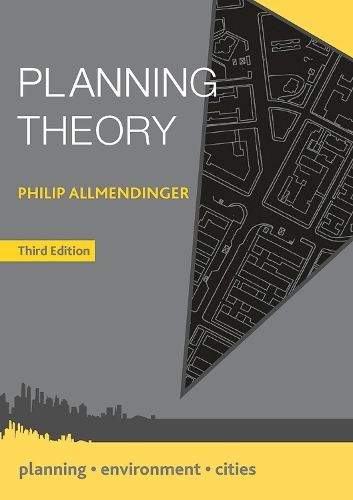
Planning Theory
(Hardback, 3rd edition)
Publishing Details
Planning Theory
By (Author) Philip Allmendinger
Bloomsbury Publishing PLC
Red Globe Press
1st August 2017
3rd edition
United Kingdom
Classifications
Professional and Scholarly
Non Fiction
Political science and theory
307.12
Physical Properties
Hardback
346
Width 148mm, Height 210mm
581g
Description
In the 3rd edition of the leading introductory textbook to planning theory, Allmendinger provides a wide-ranging and up-to-date analysis of planning theories, how these relate to planning practice, and their significance. Moving away from a linear, chronological model of progress over time from one paradigm to another, Allmendinger explains how and why different theories have gained dominance in particular places at particular times, giving the reader a holistic view of the field of scholarship and to demonstrate the relevance of planning theory for practise. Planning theory has undergone significant changes in recent decades as new theories and perspectives have emerged. Allmendigner takes care to detail the historical evolution of planning theory and the key philosophical issues involved so as enable the reader to both understand and critique theories as they encounter them. This much revised edition of Philip Allmendinger's text draws upon both established theories and expands its scope of current thinking around neoliberalism, post-colonialism and post-structuralist thinking on politics, space and scale. This unique approach to planning theory means this is an essential for all students completing planning theory courses in Urban or Planning studies, at both undergraduate and postgraduate level. New to this Edition: - Comprehensively revised and updated throughout - Greater international scope of coverage of theories and practice examples - Reflects the shift in planning theory to post-structuralism
Author Bio
PHILIP ALLMENDINGER is Professor of Land Economy, University of Cambridge, UK.
